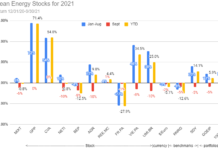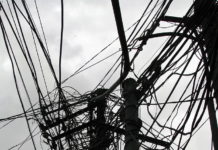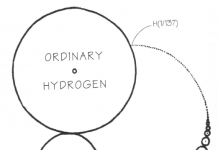Doug Young
Bottom line: Strong response to Tesla’s latest EV in China and a major new solar plant plan from SolarReserve reflect Beijing’s strong promotion of new energy, which is also creating big waste by attracting unqualified companies to the sector.
A series of new reports is showing how Beijing’s strong support for new energy technologies is benefiting both domestic and foreign companies, as China tries to become a global leader in this emerging area. But the reports also spotlight the dangers that come with such aggressive support, which often leads to abuse of subsidies and other preferential policies that can lead to big waste and market distortions.
One of the reports centers on US new energy car superstar Tesla (Nasdaq: TSLA), and quotes an executive saying that China has become the second largest market for its newest and first relatively affordable electric vehicle (EV). The second report comes from the solar energy sector, and has US solar plant developer SolarReserve LLC in a major new partnership to build more than $2 billion worth of solar farms in China.
While both of those developments look positive, and reflect big government incentives on offer, the third news item highlights the darker side of Beijing’s largess. That story comes from leading financial news magazine Caixin, whose investigative report shows how many of China’s smaller automakers have become addicted to grants and other subsidies for new energy car development and rely on such money for their profits.
Let’s begin with the Tesla story, which comes as the company tries to gain some traction in China after a poor start 2 years ago. Following positive reviews and strong initial orders for its new Model 3, costing just $35,000, Tesla’s Asia chief Ren Yuxiang is saying in an interview that China has become the second largest market for pre-orders for the new car, presumably after only the US. (English article; Chinese article)
Ren didn’t give any figures, but Tesla previously said it had received 400,000 pre-orders for the Model 3, which won’t be available in China until sometime next year. One Chinese media report also points out that Tesla has said it is exploring setting up a manufacturing plant in China, and that local reports have indicated that plant would be in the city of Suzhou not far from Shanghai.
New Solar Power Plants
Next there’s the solar plant news, which comes in a report that says SolarReserve and local partner coal producer Shenhua (HKEx: 1088) will jointly spend up to 15 billion yuan ($2.3 billion) to develop solar farms in China. (English article) Projects developed by the pair could have up to 1,000 megawatts of capacity, which is quite a large amount.
We’ve seen many similar initiatives to build solar power plants in China in response to Beijing incentives and directives, but this is one of the largest I can recall involving a foreign company. That’s significant because many Chinese builders have little experience in the sector, and may be taking their action more to please the central government than to earn actual profits. By comparison, this new partnership should be far more commercially focused, giving it better chances of success.
Finally there’s the Caixin investigative report, which saw a reporter review many companies’ latest financial statements and uncover how reliant some smaller automakers have become on Beijing incentives to develop new energy cars. (Chinese article) The report points out that many of the companies would be loss-making if they didn’t have the government support.
I’ve never heard of any of the companies named in the report, which reflects the fact that China’s auto industry is highly fragmented with dozens of small players that would never survive in a more mature market. Many of these companies probably should have closed or merged by now due to stiff competition. But they have discovered that Beijing’s largess can prolong their lives for a few more years, as they develop new energy cars that will probably never make it to market.
Doug Young has lived and worked in China for 20 years, much of that as a journalist, writing about publicly listed Chinese companies. He currently lives in Shanghai where, in addition to his role as editor of Young’s China Business Blog, he teaches financial journalism at Fudan University, one of China’s top journalism programs.. He writes daily on his blog, Young´s China Business Blog, commenting on the latest developments at Chinese companies listed in the US, China and Hong Kong. He is also author of a new book about the media in China, The Party Line: How The Media Dictates Public Opinion in Modern China.








